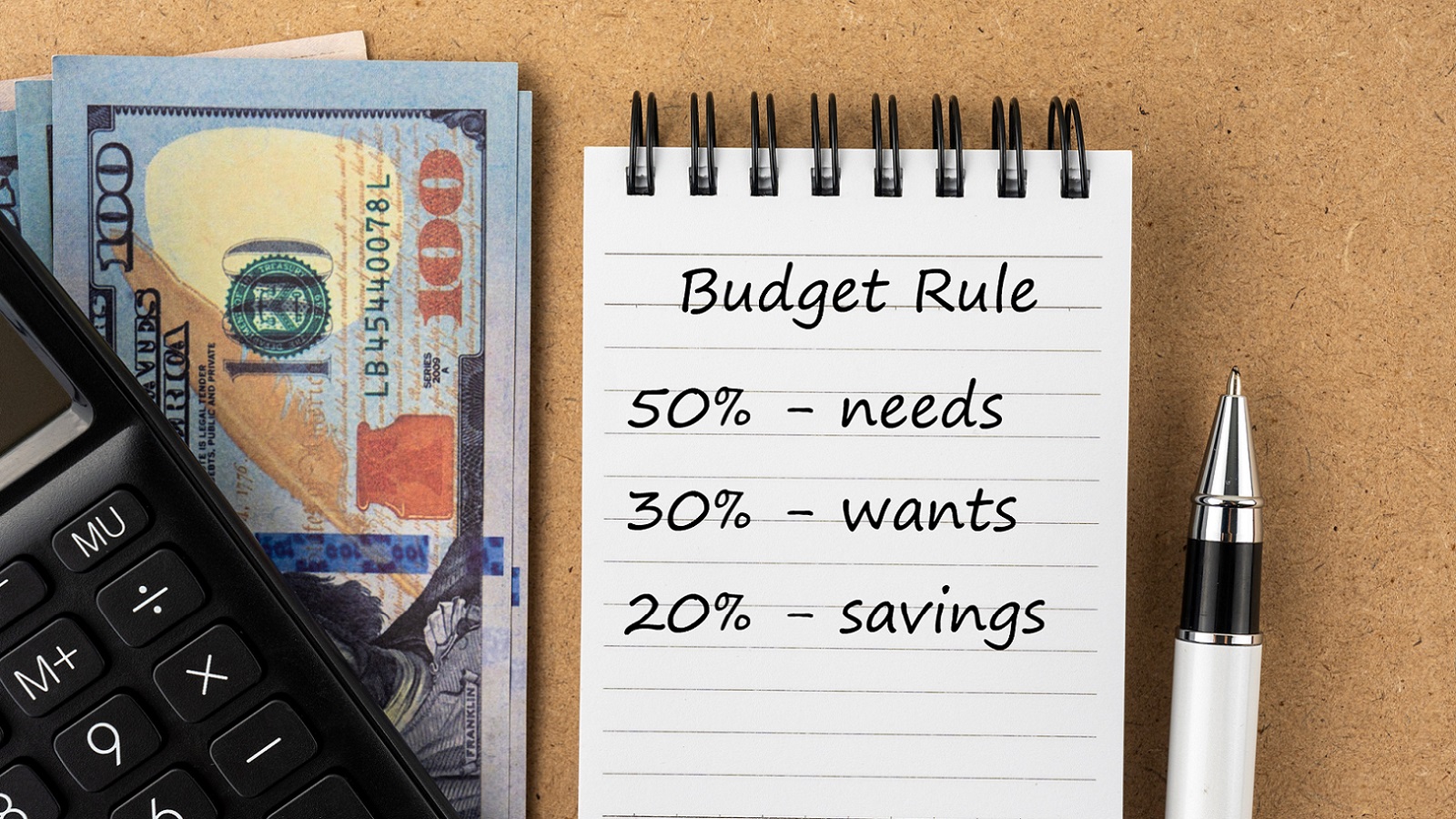5 Financial Resolutions You Should Make
Save more, spend less, pay off debt, create a budget and establish long-term goals in 2014 with the help of tried-and-true Kiplinger advice.

Profit and prosper with the best of Kiplinger's advice on investing, taxes, retirement, personal finance and much more. Delivered daily. Enter your email in the box and click Sign Me Up.
You are now subscribed
Your newsletter sign-up was successful
Want to add more newsletters?

Delivered daily
Kiplinger Today
Profit and prosper with the best of Kiplinger's advice on investing, taxes, retirement, personal finance and much more delivered daily. Smart money moves start here.

Sent five days a week
Kiplinger A Step Ahead
Get practical help to make better financial decisions in your everyday life, from spending to savings on top deals.

Delivered daily
Kiplinger Closing Bell
Get today's biggest financial and investing headlines delivered to your inbox every day the U.S. stock market is open.

Sent twice a week
Kiplinger Adviser Intel
Financial pros across the country share best practices and fresh tactics to preserve and grow your wealth.

Delivered weekly
Kiplinger Tax Tips
Trim your federal and state tax bills with practical tax-planning and tax-cutting strategies.

Sent twice a week
Kiplinger Retirement Tips
Your twice-a-week guide to planning and enjoying a financially secure and richly rewarding retirement

Sent bimonthly.
Kiplinger Adviser Angle
Insights for advisers, wealth managers and other financial professionals.

Sent twice a week
Kiplinger Investing Weekly
Your twice-a-week roundup of promising stocks, funds, companies and industries you should consider, ones you should avoid, and why.

Sent weekly for six weeks
Kiplinger Invest for Retirement
Your step-by-step six-part series on how to invest for retirement, from devising a successful strategy to exactly which investments to choose.
You probably won't be crafting a budget or plotting your 2014 money goals on New Year's Eve. But if you're like the majority of Americans, you will resolve to improve your finances in the New Year -- and we can help. A record 54% of Americans say they will make financial resolutions for 2014, according to the Fidelity New Year Financial Resolutions Study. When Fidelity first conducted its annual study in 2009, only 35% of respondents said they typically consider financial resolutions.
Below are the top financial resolutions, according to the Fidelity study. All are worth setting as your own goals for 2014. Along with each resolution is tried-and-true Kiplinger advice to help you achieve that goal.
1. Save more. With 54% of the Fidelity survey respondents indicating that they want to save more money, this is by far the top financial resolution for 2014. It's no surprise considering that the personal savings rate in the U.S. is just 4.9% of disposable income, down from a high of 14.6% in 1975. Your first savings goal should be to build an emergency fund that can be tapped in the event of an illness, job loss or unexpected calamity (see 7 Strategies to Build an Emergency Fund). Once your emergency fund is well under way, you can divert small amounts toward other goals, such as increasing your nest egg, buying a home or paying for college. These six strategies can help you save more, no matter your income. See Where to Keep Your Savings Now for the best places to earn a decent return on your money.
From just $107.88 $24.99 for Kiplinger Personal Finance
Become a smarter, better informed investor. Subscribe from just $107.88 $24.99, plus get up to 4 Special Issues

Sign up for Kiplinger’s Free Newsletters
Profit and prosper with the best of expert advice on investing, taxes, retirement, personal finance and more - straight to your e-mail.
Profit and prosper with the best of expert advice - straight to your e-mail.
2. Pay off debt. About one-quarter of the Fidelity respondents listed this as their top resolution. However, anyone with high-interest credit-card debt should make paying it off a priority. That's because the return will likely be greater than what you would get with most investments. For example, it would take 28 years and cost $10,663 in interest to pay off the average household credit card balance of $7,050 with just minimum monthly payments. But boosting the monthly payment to $250 would wipe out that debt in three years and save about $9,000 in interest. See Escape the Debt Trap for strategies to chip away at what you owe.
3. Spend less. This resolution ranked third in the Fidelity study. But it goes hand-in-hand with the top two resolutions on the Fidelity list. That fact is, it's tough to save more and pay off debt if you don't reign in spending. To do so, you need to track where the money goes every month. Try to zero in on nonessential areas where you can cut back. For help, see our list of 28 common ways people waste money. If any of them sound familiar, cut those unnecessary expenses so you can keep more money in your pocket.
4. Develop a long-term plan. Long-term financial goals can take a backseat to the present-day demands on your money, often making it difficult to even set such goals. However, if you don't take the time to, say, figure out how much you need to save to live comfortably in retirement, you might find yourself without enough cash to cover the bills when you're no longer working. For help, see How to Set Financial Goals. And take our Are You Saving Enough for Retirement? quiz to see if you're on track and what steps you can take to reach your goal.
5. Make and stick to a budget. Although budgeting was among the top five resolutions in the Fidelity survey, only 12% of respondents indicated that it was their top financial goal for 2014. Perhaps it's because many think of a budget as a straitjacket that limits spending and takes the joy out of life. In reality, it can set you free. When you have a plan, know how much money you have and where it's going, you don't have to worry about it. Here are our favorite budgeting sites that can you help you stay in control of your money and our own household budget worksheet.
Profit and prosper with the best of Kiplinger's advice on investing, taxes, retirement, personal finance and much more. Delivered daily. Enter your email in the box and click Sign Me Up.

Award-winning journalist, speaker, family finance expert, and author of Mom and Dad, We Need to Talk.
Cameron Huddleston wrote the daily "Kip Tips" column for Kiplinger.com. She joined Kiplinger in 2001 after graduating from American University with an MA in economic journalism.
-
 5 Vince Lombardi Quotes Retirees Should Live By
5 Vince Lombardi Quotes Retirees Should Live ByThe iconic football coach's philosophy can help retirees win at the game of life.
-
 The $200,000 Olympic 'Pension' is a Retirement Game-Changer for Team USA
The $200,000 Olympic 'Pension' is a Retirement Game-Changer for Team USAThe donation by financier Ross Stevens is meant to be a "retirement program" for Team USA Olympic and Paralympic athletes.
-
 10 Cheapest Places to Live in Colorado
10 Cheapest Places to Live in ColoradoProperty Tax Looking for a cozy cabin near the slopes? These Colorado counties combine reasonable house prices with the state's lowest property tax bills.
-
 I Need to Cut $1,000 From My Monthly Budget, and I've Already Given Up Starbucks and Dining Out. What Else Can I Do?
I Need to Cut $1,000 From My Monthly Budget, and I've Already Given Up Starbucks and Dining Out. What Else Can I Do?Here are some creative ways to save up to $1,000 a month, even if you feel like you've already made all of the obvious cuts.
-
 I'm a Government Employee and Need to Get By Until the Shutdown Ends. What Can I Do?
I'm a Government Employee and Need to Get By Until the Shutdown Ends. What Can I Do?The second-longest shutdown in history is leaving many federal workers with bills due and no paycheck to cover them. Here's what you can do to get by.
-
 What Does Medicare Not Cover? Eight Things You Should Know
What Does Medicare Not Cover? Eight Things You Should KnowMedicare Part A and Part B leave gaps in your healthcare coverage. But Medicare Advantage has problems, too.
-
 Five Ways to Save on Vacation Rental Properties
Five Ways to Save on Vacation Rental PropertiesTravel Use these strategies to pay less for an apartment, condo or house when you travel.
-
 How to Avoid Annoying Hotel Fees: Per Person, Parking and More
How to Avoid Annoying Hotel Fees: Per Person, Parking and MoreTravel Here's how to avoid extra charges and make sure you don't get stuck paying for amenities that you don't use.
-
 The 50-30-20 Budget Rule: A Simple Way to Save Money
The 50-30-20 Budget Rule: A Simple Way to Save MoneySaving Using the 50-30-20 budget rule is an easy way to save. It helps you prioritize saving while paying off debt.
-
 'Food Tax': Which States Still Tax Groceries?
'Food Tax': Which States Still Tax Groceries?State Tax Ten states still tax groceries, but that figure is shrinking.
-
 How Our Family Fights Inflation
How Our Family Fights InflationBudgeting Millennials typically spend more than other generations on certain expenses that have been increasing most rapidly. Here are some tips to cut your losses.